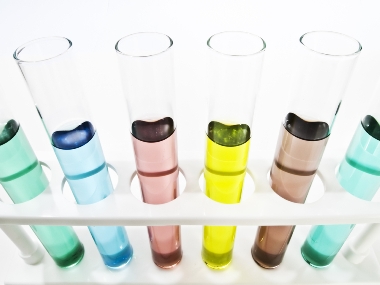When new technology is introduced in medicine, the Federal Drug Administration (FDA) tests the product to ensure it is safe and performs the task that the manufacturer designed it to perform. The FDA has many different methodologies for tracking medications and devices used in the healthcare industry, just in case a product has to be recalled. When the device in question is an implant that is placed inside of the human body, identifying it with great accuracy is critical. The Unique Device Identification (UDI) Direct Mark requirement proposed by the FDA mandates medical device manufacturers to comply with the regulation for making implantable devices identifiable from outside the body.
The direct marking requirement is a recommendation for implanted medical devices because it is easier and more practical to have these products marked this way. Currently, the Q Inside radio frequency identification (RFID) microchips is the only direct mark technology that provides Automatic Identification and Data Capture (AIDC), which meets the proposed rules of the UDI regulation. The UDI regulation is currently under final review and it is scheduled to be released in the very near future.

Image via shutterstock.com
The FDA Safety and Innovation Act was signed into law on July 9, 2012, and along with the Act it proposed the new rules for the UDI system. The error reporting system will make it possible to quickly identify issues related to any malfunction of the device in question. Healthcare workers will have a platform for entering related information using electronic health records and clinical information systems. Having a standardized identifier gives everyone in the value chain a more effective method for managing the recall of any defective product around the world. This process also ensures that only original equipment is used when the device is being implanted into the patient. Counterfeit medication and medical devices are responsible for many serious injuries around the world, and regulators expect this measure will give medical professionals a powerful tool to combat this problem.
"We believe we are uniquely positioned with our FDA-cleared technology and have an early mover advantage to give major medical device manufacturers the ability to comply with the direct mark requirement of the FDA's Proposed Rule. More importantly, however, our "Q Inside" technology not only can help device manufacturers, but ultimately can enable a patient's healthcare team to have accurate and timely access to data about an implantable medical device, in vivo, on demand, in the event of a recall or other safety event. We are not aware of any other currently available and proven technology that has this ability," stated Scott R. Silverman, Chairman and CEO of Digital Angel.
VeriTeQ is a wholly owned subsidiary of Digital Angel, developing RFID technologies for implantable medical device identification and dosimeter technologies for use in radiation therapy treatment. As the world's first and only implantable RFID technology, it provides a solution for identifying medical devices in vivo, on demand and at the point of care. The company has intellectual properties with more than 100 issued patents, patent pending, and patent licenses. The technology it produces is FDA Cleared and CE marked for compliance in the European Union.
Edited by
Ryan Sartor